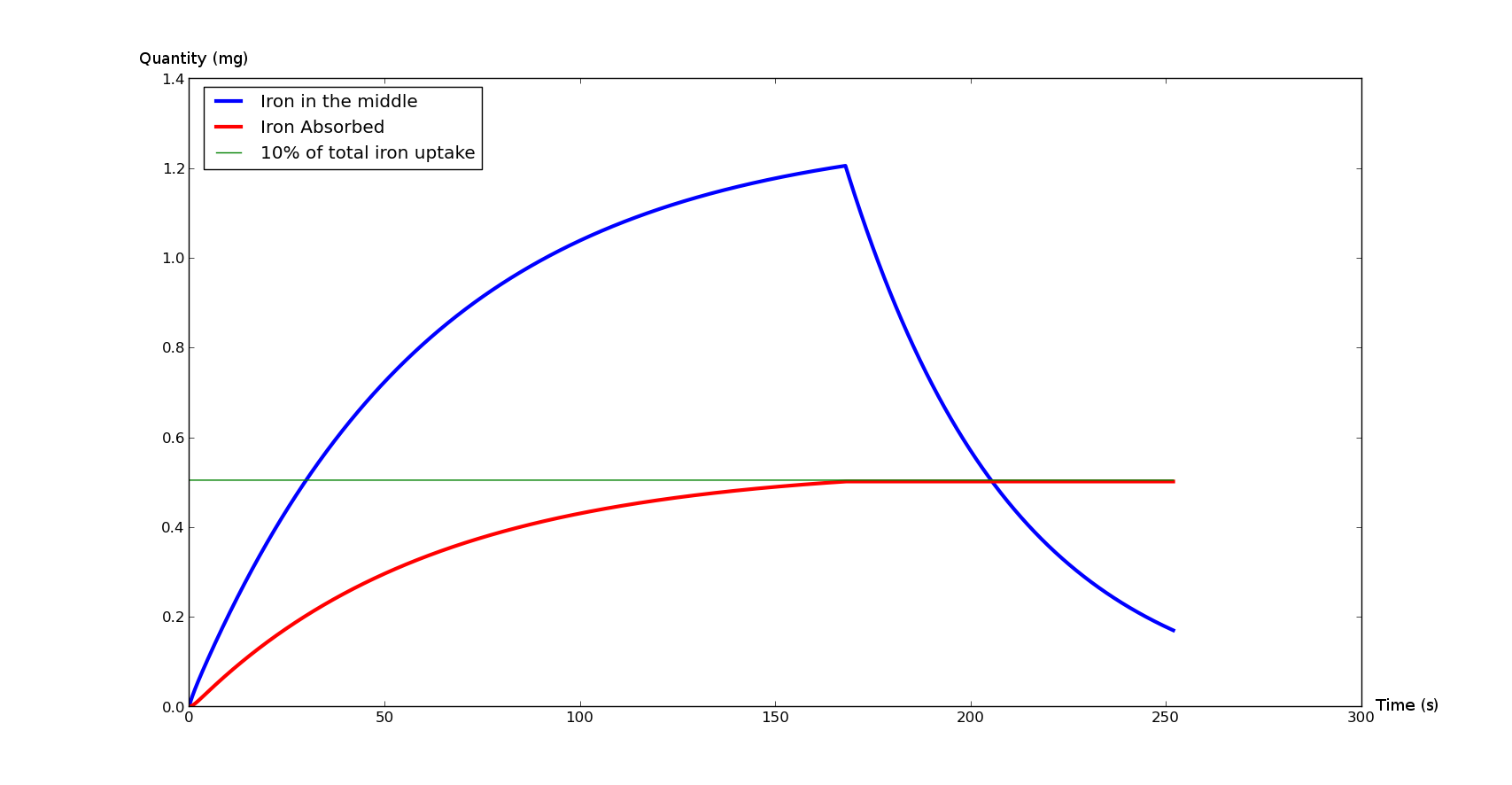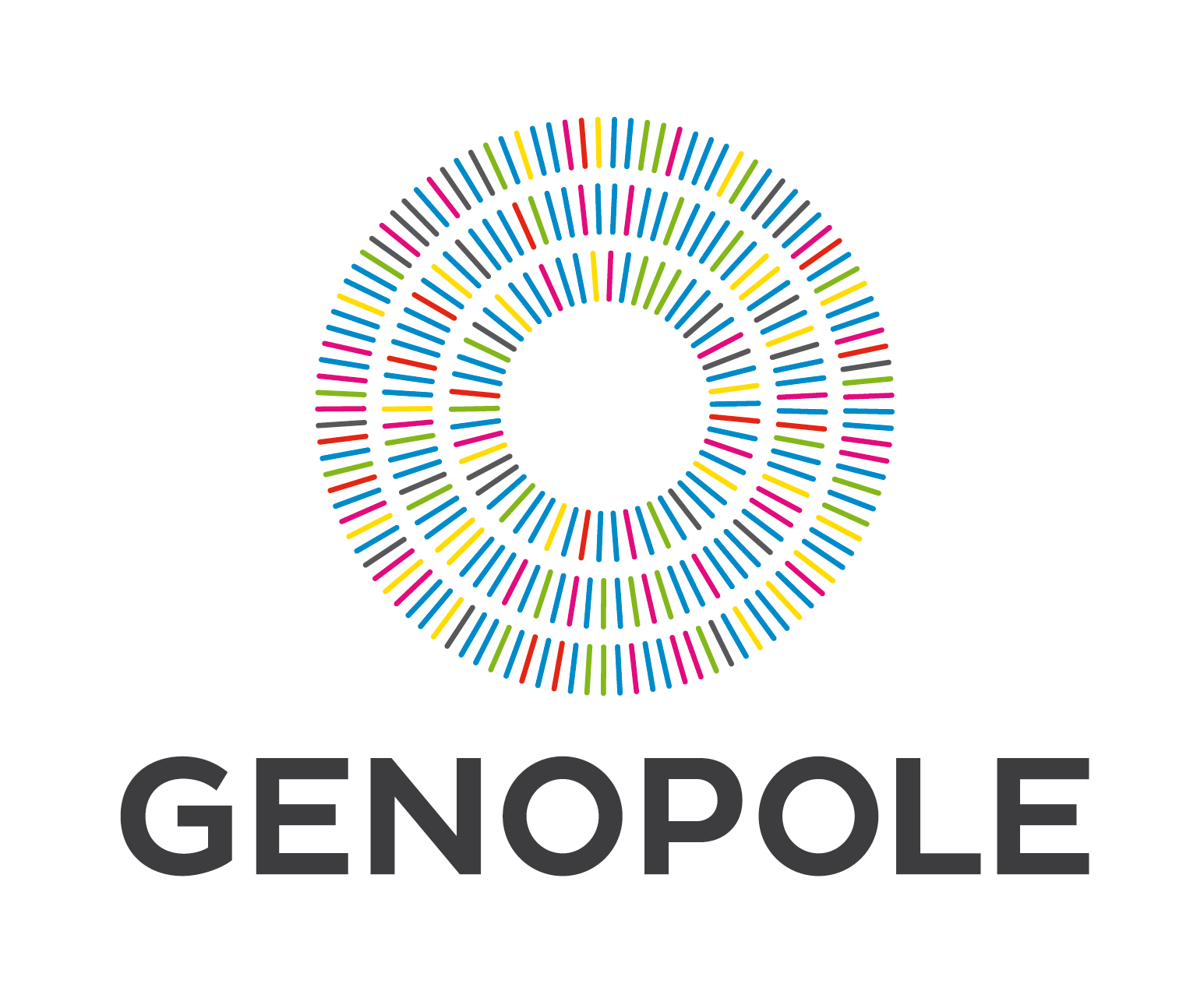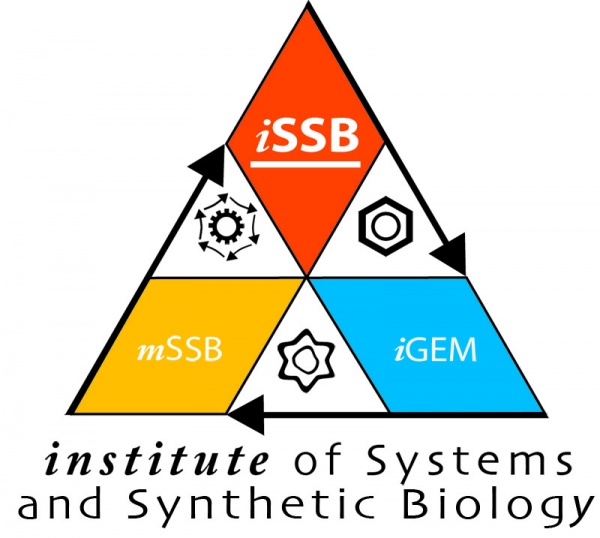Team:Evry/Modeltr1
From 2013.igem.org
| Line 61: | Line 61: | ||
Finally : | Finally : | ||
| - | <img src="https://static.igem.org/mediawiki/2013/8/82/Healthyeq.png" width= | + | <img src="https://static.igem.org/mediawiki/2013/8/82/Healthyeq.png" width=50% /><br/> |
</p> | </p> | ||
Revision as of 17:27, 23 October 2013
Disease model
Introduction
At the beginning of the project, we must explore iron metabolism of a human. This model is the result of this exploration. So, we make a model of a healthy person.
Observations
60% of iron absorption takes place in the duodenum, the last 40% in the jejunum.Duodenum is located on the upper intestines, just after the stomach, and is usually 300mm long. Naturaly, the middle is the duodenum.
A healthy person absorbed 10% of the iron uptake of a day (2 mg), while a sick person could absorb between 50% and 100% of the iron uptake in one day ([1]).
Goals
This model is the first step for a sick person with treatment model . So, we want to have a realistic base for the final model.
Assumptions
- Constant iron flow
- Homogeneous fluid
- The patient ingests 20mg of iron per day (Guideline Daily Amounts)
Materials and methods
The duodenum is a cylindrique pipe throw by a homogeneous fluid. So, we three step in the model: the filling of duodenum, steady state step and the emptying.
This model have two state variable : iron disolved in the middle (S) and iron absorbed (A).
We considere a constant iron pulse every second arrive in the duodenum. S have a linear composant Sp who represent the pulses. We have the emptying compopsant and finally the absorption composant.
We assume a linear absorption and a negative feedback regulation for A.
Finally :

Results
Conclusion
Models and scripts
References:
- Physiol Rev 93: 1721–1741, 2013 doi:10.1152/physrev.00008.2013 - Tomas Ganz "SYSTEMIC IRON HOMEOSTASIS"
 "
"
















